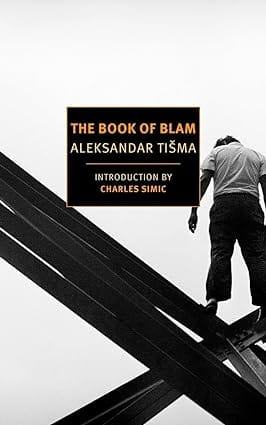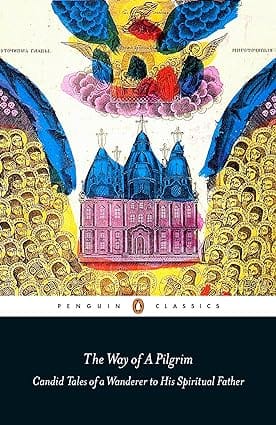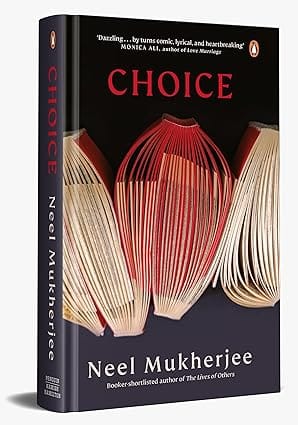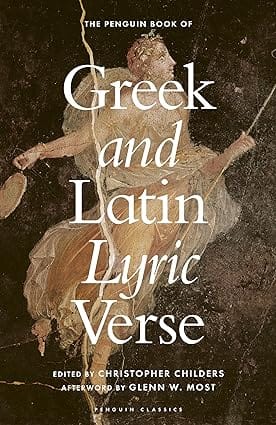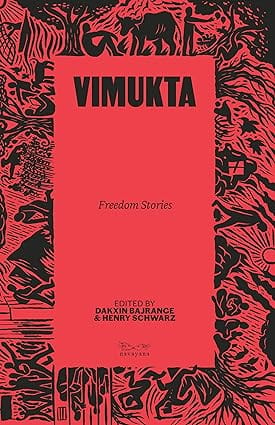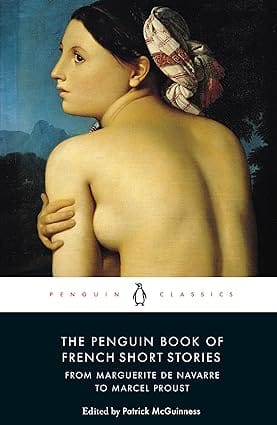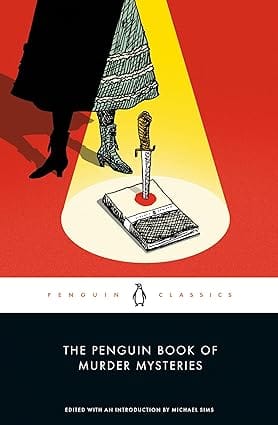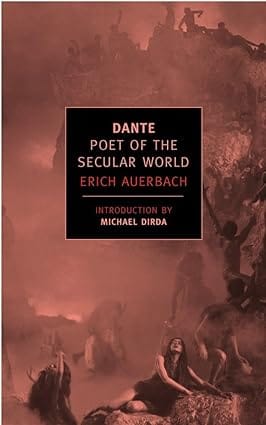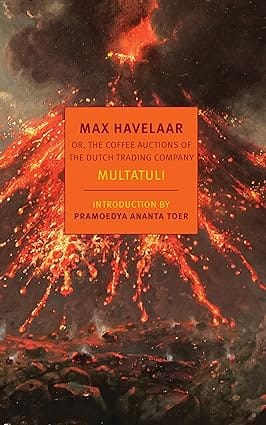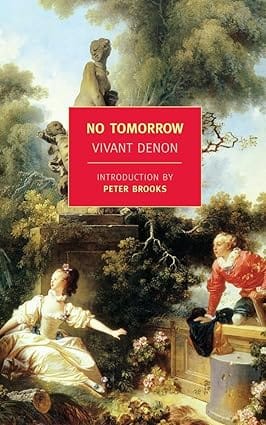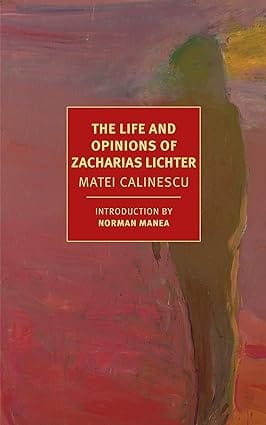WELCOME TO MIDLAND BOOK SHOP!
SHOP FOR
- Contemporary Fiction
- Contemporary Fiction
- Children
- Children
- Comics & Graphic Novels
- Comics & Graphic Novels
- Non-Fiction
- Non-Fiction
- Fiction
- Fiction
Shop No.20, Aurobindo Palace Market, Hauz Khas, Near Church +91 9818282497 | 011 26867121 110016 New Delhi IN
Midland The Book Shop ™
Shop No.20, Aurobindo Palace Market, Hauz Khas, Near Church +91 9818282497 | 011 26867121 New Delhi, IN
+919871604786 https://www.midlandbookshop.com/s/607fe93d7eafcac1f2c73ea4/6468e33c3c35585403eee048/without-tag-line-480x480.png" [email protected]9781590179208 65d896ea384bebba191790cd The Book Of Blam https://www.midlandbookshop.com/s/607fe93d7eafcac1f2c73ea4/65d896ec384bebba19179101/61jjngm5pbl-_sy425_.jpg 9781590179208
Review
“One of the most stirring novels to come from the Balkans.”—Larry Wolff The New York Times
“A startling, extraordinary creation.” —The New Yorker
“Tišma has made Novi Sad a microcosm for the most painful developments of 20th-century history. It is a city of tiers, one tier the actual city in which Miroslav survives, the other filled by the possible lives of those who perished. Yet life on the edge of the abyss is surprisingly normal...The intersection of this high intellectual refinement with the most brutal incidents in history gives the novel, which has been published to acclaim in France and Germany, its great, eccentric pathos.” —Publishers Weekly
“A Balkan bible presided over by an ironic vision of the imagination, capable of envisioning utter barbarity but not the expiation for sins.”—The Boston Globe
“Tišma is unrelenting in his quest for truth yet compassionate in his judgments of individuals.”—The Wall Street Journal
“A startling, extraordinary creation.” —The New Yorker
“Tišma has made Novi Sad a microcosm for the most painful developments of 20th-century history. It is a city of tiers, one tier the actual city in which Miroslav survives, the other filled by the possible lives of those who perished. Yet life on the edge of the abyss is surprisingly normal...The intersection of this high intellectual refinement with the most brutal incidents in history gives the novel, which has been published to acclaim in France and Germany, its great, eccentric pathos.” —Publishers Weekly
“A Balkan bible presided over by an ironic vision of the imagination, capable of envisioning utter barbarity but not the expiation for sins.”—The Boston Globe
“Tišma is unrelenting in his quest for truth yet compassionate in his judgments of individuals.”—The Wall Street Journal
About the Author
Aleksandar Tišma (1924–2003) was born in the Vojvodina, a former province of the Austro-Hungarian Empire that had been incorporated into the new kingdom of Yugoslavia after the First World War. His father, a Serb, came from a peasant background; his mother was middle-class and Jewish. The family lived comfortably, and Tišma received a good education. In 1941, Hungary annexed Vojvodina; the next year—Tišma’s last in high school—the regime carried out a series of murderous pogroms, killing some 3,000 inhabitants, primarily Serbs and Jews, though the Tišmas were spared. After fighting for the Yugoslav partisans, Tišma studied philosophy at the University of Belgrade and went into journalism. In 1949 he joined the editorial staff of a publishing house, where he remained until his retirement in 1980. Tišma published his first story, “Ibika’s House,” in 1951; it was followed by the novels Guilt and In Search of the Dark Girl and a collection of stories, Violence. In the 1970s and ’80s, he gained international recognition with the publication of his Novi Sad trilogy: The Book of Blam (1972), about a survivor of the Hungarian occupation of Novi Sad; The Use of Man (1976), which follows a group of friends through the Second World War and after; and Kapo (1987), the story of a Jew raised as a Catholic who becomes a guard in a German concentration camp. Tišma moved to France after the outbreak of war and collapse of Yugoslavia in the early 1990s, but in 1995 he returned to Novi Sad, where he spent his last years.
Michael Henry Heim (1943–2012) was a professor of Slavic languages at the University of California, Los Angeles. Fluent in eight languages, Heim was the recipient of many awards and translated such writers as Anton Chekhov, Milan Kundera, Günter Grass, Bohumil Hrabal, Danilo Kiš, and Dubravka Ugrešic. He is the subject of The Man Between: Michael Henry Heim & A Life in Translation, edited by Esther Allen, Sean Cotter, and Russell Scott Valentino.
Charles Simic is a poet, essayist, and translator. He has published some twenty collections of poetry, six books of essays, a memoir, and numerous translations. He is the recipient of many awards, including the Pulitzer Prize, the Griffin Poetry Prize, and a MacArthur Fellowship. Among Simic’s recent works are New and Selected Poems: 1962–2012, The Lunatic, and Confessions of a Poet Laureate, a book of essays that was published by New York Review Books as an e-book original. In 2007 Simic was appointed the fifteenth Poet Laureate Consultant in Poetry to the Library of Congress.
Michael Henry Heim (1943–2012) was a professor of Slavic languages at the University of California, Los Angeles. Fluent in eight languages, Heim was the recipient of many awards and translated such writers as Anton Chekhov, Milan Kundera, Günter Grass, Bohumil Hrabal, Danilo Kiš, and Dubravka Ugrešic. He is the subject of The Man Between: Michael Henry Heim & A Life in Translation, edited by Esther Allen, Sean Cotter, and Russell Scott Valentino.
Charles Simic is a poet, essayist, and translator. He has published some twenty collections of poetry, six books of essays, a memoir, and numerous translations. He is the recipient of many awards, including the Pulitzer Prize, the Griffin Poetry Prize, and a MacArthur Fellowship. Among Simic’s recent works are New and Selected Poems: 1962–2012, The Lunatic, and Confessions of a Poet Laureate, a book of essays that was published by New York Review Books as an e-book original. In 2007 Simic was appointed the fifteenth Poet Laureate Consultant in Poetry to the Library of Congress.
in stockINR 1000
1 1
Email ID already exists!
Your Current password is incorrect
Password Updated Successfully
Thanks for your Feedback
- Home
- Literature & Fiction
- The Book Of Blam
The Book Of Blam
ISBN: 9781590179208
₹1,000
₹1,250 (20% OFF)SIZE GUIDE
Sold By: Hauz Khas - Aurobindo Market
Details
- ISBN: 9781590179208
- Author: Aleksandar Tisma
- Publisher: Nyrb Classics
- Pages: 288
- Format: Paperback
Book Description
Review
“One of the most stirring novels to come from the Balkans.”—Larry Wolff The New York Times
“A startling, extraordinary creation.” —The New Yorker
“Tišma has made Novi Sad a microcosm for the most painful developments of 20th-century history. It is a city of tiers, one tier the actual city in which Miroslav survives, the other filled by the possible lives of those who perished. Yet life on the edge of the abyss is surprisingly normal...The intersection of this high intellectual refinement with the most brutal incidents in history gives the novel, which has been published to acclaim in France and Germany, its great, eccentric pathos.” —Publishers Weekly
“A Balkan bible presided over by an ironic vision of the imagination, capable of envisioning utter barbarity but not the expiation for sins.”—The Boston Globe
“Tišma is unrelenting in his quest for truth yet compassionate in his judgments of individuals.”—The Wall Street Journal
“A startling, extraordinary creation.” —The New Yorker
“Tišma has made Novi Sad a microcosm for the most painful developments of 20th-century history. It is a city of tiers, one tier the actual city in which Miroslav survives, the other filled by the possible lives of those who perished. Yet life on the edge of the abyss is surprisingly normal...The intersection of this high intellectual refinement with the most brutal incidents in history gives the novel, which has been published to acclaim in France and Germany, its great, eccentric pathos.” —Publishers Weekly
“A Balkan bible presided over by an ironic vision of the imagination, capable of envisioning utter barbarity but not the expiation for sins.”—The Boston Globe
“Tišma is unrelenting in his quest for truth yet compassionate in his judgments of individuals.”—The Wall Street Journal
About the Author
Aleksandar Tišma (1924–2003) was born in the Vojvodina, a former province of the Austro-Hungarian Empire that had been incorporated into the new kingdom of Yugoslavia after the First World War. His father, a Serb, came from a peasant background; his mother was middle-class and Jewish. The family lived comfortably, and Tišma received a good education. In 1941, Hungary annexed Vojvodina; the next year—Tišma’s last in high school—the regime carried out a series of murderous pogroms, killing some 3,000 inhabitants, primarily Serbs and Jews, though the Tišmas were spared. After fighting for the Yugoslav partisans, Tišma studied philosophy at the University of Belgrade and went into journalism. In 1949 he joined the editorial staff of a publishing house, where he remained until his retirement in 1980. Tišma published his first story, “Ibika’s House,” in 1951; it was followed by the novels Guilt and In Search of the Dark Girl and a collection of stories, Violence. In the 1970s and ’80s, he gained international recognition with the publication of his Novi Sad trilogy: The Book of Blam (1972), about a survivor of the Hungarian occupation of Novi Sad; The Use of Man (1976), which follows a group of friends through the Second World War and after; and Kapo (1987), the story of a Jew raised as a Catholic who becomes a guard in a German concentration camp. Tišma moved to France after the outbreak of war and collapse of Yugoslavia in the early 1990s, but in 1995 he returned to Novi Sad, where he spent his last years.
Michael Henry Heim (1943–2012) was a professor of Slavic languages at the University of California, Los Angeles. Fluent in eight languages, Heim was the recipient of many awards and translated such writers as Anton Chekhov, Milan Kundera, Günter Grass, Bohumil Hrabal, Danilo Kiš, and Dubravka Ugrešic. He is the subject of The Man Between: Michael Henry Heim & A Life in Translation, edited by Esther Allen, Sean Cotter, and Russell Scott Valentino.
Charles Simic is a poet, essayist, and translator. He has published some twenty collections of poetry, six books of essays, a memoir, and numerous translations. He is the recipient of many awards, including the Pulitzer Prize, the Griffin Poetry Prize, and a MacArthur Fellowship. Among Simic’s recent works are New and Selected Poems: 1962–2012, The Lunatic, and Confessions of a Poet Laureate, a book of essays that was published by New York Review Books as an e-book original. In 2007 Simic was appointed the fifteenth Poet Laureate Consultant in Poetry to the Library of Congress.
Michael Henry Heim (1943–2012) was a professor of Slavic languages at the University of California, Los Angeles. Fluent in eight languages, Heim was the recipient of many awards and translated such writers as Anton Chekhov, Milan Kundera, Günter Grass, Bohumil Hrabal, Danilo Kiš, and Dubravka Ugrešic. He is the subject of The Man Between: Michael Henry Heim & A Life in Translation, edited by Esther Allen, Sean Cotter, and Russell Scott Valentino.
Charles Simic is a poet, essayist, and translator. He has published some twenty collections of poetry, six books of essays, a memoir, and numerous translations. He is the recipient of many awards, including the Pulitzer Prize, the Griffin Poetry Prize, and a MacArthur Fellowship. Among Simic’s recent works are New and Selected Poems: 1962–2012, The Lunatic, and Confessions of a Poet Laureate, a book of essays that was published by New York Review Books as an e-book original. In 2007 Simic was appointed the fifteenth Poet Laureate Consultant in Poetry to the Library of Congress.
User reviews
NEWSLETTER
Subscribe to get Email Updates!
Thanks for subscribing.
Your response has been recorded.

India's Iconic & Independent Book Store offering a vast selection of books across a variety of genres Since 1978.
"We Believe In The Power of Books" Our mission is to make books accessible to everyone, and to cultivate a culture of reading and learning. We strive to provide a wide range of books, from classic literature, sci-fi and fantasy, to graphic novels, biographies and self-help books, so that everyone can find something to read.
Whether you’re looking for your next great read, a gift for someone special, or just browsing, Midland is here to make your book-buying experience easy and enjoyable.
We are shipping pan India and across the world.
For Bulk Order / Corporate Gifting
 +91 9818282497 |
+91 9818282497 |  [email protected]
[email protected]
Click To Know More
INFORMATION
ACCOUNT
ADDRESS
Midland Book Shop - Hauz Khas
Shop No.20, Aurobindo Palace Market, Near Church, New Delhi
Shop No.20, Aurobindo Palace Market, Near Church, New Delhi

